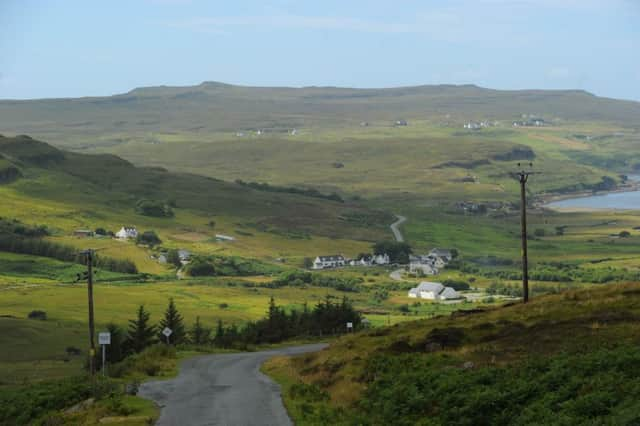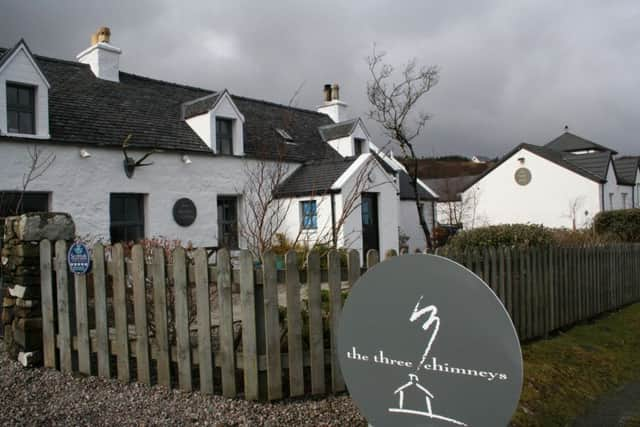Skye residents worry slow broadband will become the norm


But for members of the North Skye Broadband community group, there are more pressing matters to think about than an accolade bestowed by a property listings website based in London.
The Inner and Outer Hebrides already make do with some of the worst internet connectivity in the UK - and islanders worry the so-called digital divide will only worsen in the coming years.
Advertisement
Hide AdAdvertisement
Hide AdAround 86 per cent of homes and businesses north of the border had access to fibre broadband by March this year, as a £410m project launched by the Scottish Government and BT in 2013 gathered pace.


The Government’s ultimate vision is for superfast broadband - defined as speeds of 30MB per second or above - to be available across the country by 2021.
Reaching the most remote corners of Scotland, such as North Skye, is challenging due to the high costs of installing infrastructure in sparsely populated areas.
While residents are grateful for any improvements, there are concerns that, in the rapidly evolving world of connectivity, superfast will look decidedly slow in five years’ time.
Many UK cities will soon be capable of delivering of speeds of one gigabit per second, the equivalent of 1,000MB.


“What is currently being rolled out across the BT programme is fibre connected to cabinets by copper wire,” said Elgar Finlay, from Glendale in Skye.
“In the most rural areas, these copper wires are travelling over a kilometre, which is not great for speeds.”
Finlay, lead development officer at North Skye Broadband, wants to see a future-proofed network installed - capable of being upgraded to faster speeds over time.
Advertisement
Hide AdAdvertisement
Hide Ad“Is the infrastructure being put in going to be suitable in five years’ time? I don’t think that’s the case.
“If you look at our cities, and across Europe, the ambition is to get to gigabit connectivity, and we’re really far off that.
“What happens if gigabit systems become the minimum requirement and we’re stuck on superfast? The digital divide could be even wider.”
Finlay, who lives a short distance from the famous Three Chimneys restaurant, points out internet speeds are so slow locally that visitors struggle to upload pictures to social media.
“If cities are gigabyte connected, healthcare moves online, the Internet of Things takes hold, the backbone of infrastructure is not going to be there for rural communities.
“Skye has been voted the most desirable place to live - but why would you move here if you can’t get online?
“We could repopulate the Outer Hebrides if we make it attractive for families to move here. These are the sorts of things we need to think about now.
“The digital divide could lead to the digital clearances.”
A spokeswoman for the Scottish Government said it had placed digital connectivity “at the heart” of its agenda.
Advertisement
Hide AdAdvertisement
Hide Ad“We have committed to delivering 100 per cent superfast broadband coverage for Scotland by the end of the next Parliament,” she said.
“Broadband coverage is key to many aspects of rural life and, alongside our delivery partners, we are investing £410 million to extend access to fibre broadband to 95 per cent of premises in Scotland by the end of 2017 through the Digital Scotland Superfast Broadband programme.
“Commercial coverage alone would only have delivered 66 per cent.
“A key part of this has been delivery of new future-proofed sub-sea fibre connections, one of which links Skye to the mainland and other islands, and will support the delivery of high bandwidth broadband and mobile services now and in the future.”